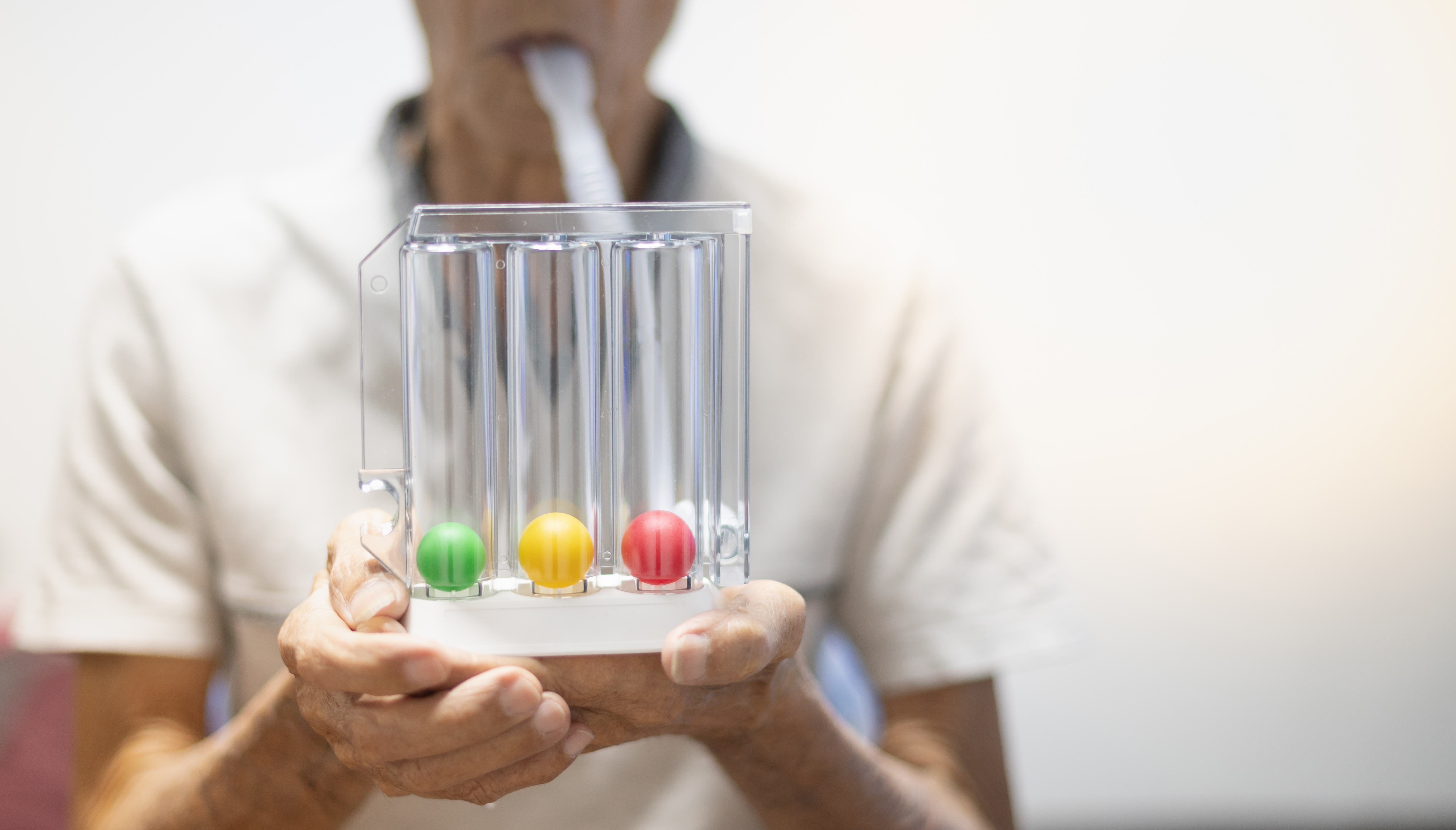Hints and tips: Pursing your lips
- Pursed lips are a simple but good way to control your breathing. Pursed means to press your lips together.
- Breathe in through your nose and out through your mouth as before. The pursed lips will slow down your breathing and help you feel in control.
It may help to make a whistle noise as you breathe out through your pursed lips. This will let you know that you are doing it right.








